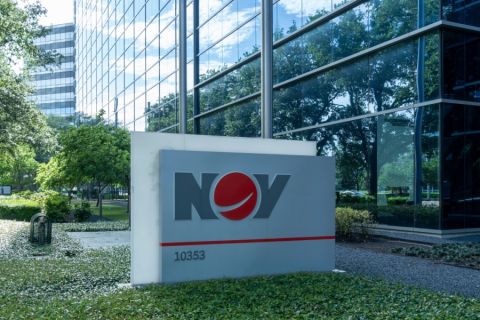Heard from Washington the other day. Apparently we're all supposed to drive a Prius. Of course, the emissary himself doesn't drive one. He's just the messenger, you see. Like so many of these folks from Washington: they're full of ideas about how other people should live. They love to butter an energy crowd with knowledge that gasoline is cheaper than bottled water, for example. But they know we're not a country of guzzling hydrophiliacs. No one-well, seemingly no one-drinks 22 gallons of bottled water a week! Or Starbucks. Or Courvoissier. Even Art Smith at John S. Herold Inc., which annually publishes an analysis of the price of gasoline versus other liquids, such as water and Visine, quickly adds that the comparisons are done in jest. But it is one of those great Washingtonian one-liners, the kind they seem to love in D.C. In another crowd, they're slamming the auto industry for not making cars that run on water. It has been established that gasoline is cheaper than bottled water, but never mind that. Of course, we really should all drive a Prius, if we're interested in cheap energy in America forever. Two of the most important ingredients to economic growth: cheap energy and cheap water. A sage Texan brought that up as table conversation at a recent Houston program where Madeleine Albright was promoting her new book. It was told to him decades ago by a California law school professor speaking on the subject of water rights. It's still true today. According to the Energy Information Administration (EIA), worldwide energy consumption-currently about 285 quadrillion Btu a year-will total more than 450 quad in 2025, when considering the forecast for population growth. In theory, energy demand could be for 450-plus quad a year. But will the supply be there for consumption? Is it possible to supply 450 quad in a year, or for many years? What is more likely to happen is clearer when looking at the EIA data in chart form, which was supplied by Patricia Godley, a former Department of Energy assistant secretary for fossil energy, at a recent Petrie Parkman & Co. program for energy industry professionals. Godley managed the divestment of U.S. interests in the huge Elk Hills, California, oil field in 1998; Petrie Parkman and CS First Boston advised the DOE on the sale. In the chart, energy consumption today and in the forecast for 2025 is broken down by geopolitical regions: the U.S., western Europe, eastern Europe, Japan, China, the Middle East, Africa and Latin America. Growth is expected in every region. What is more likely to happen is that energy consumption will grow in some regions and not much in others. This isn't because there won't be increased demand everywhere. Instead, it will be because energy won't be cheap everywhere. Just as we see today today, there will be cheap-energy haves and cheap-energy have-nots. In 2025, the chasm could be quite wide. So we return to the issue of cheap energy in America forever. U.S. economic dominance-a good part made possible today by the availability of low-priced energy-will be a crucial factor in whether Americans enjoy relatively affordable energy in 2025. A strong economy equals more global might equals the ability to continue to acquire cheap energy. An example of that is in Iraq, where U.S. control over tremendous oil reserves and production potential will help guarantee cheap energy in America for many more years. The U.S. is a de facto member of OPEC right now. What a coup-to be both a member of OPEC and not a member of OPEC. To be a free agent in the kingdom of oil. To be able to play both sides. The Washingtonian wowser with the affinity for the Prius added that he is tremendously concerned about U.S. energy policy-the lack of an energy policy. He must have meant a domestic energy policy. Looking at Iraq, it is clear we have an international energy policy, at least an unwritten one. It seems this is where a Courvoissier or bottled-water toast is in order: Viva cheap energy! But let's not be greedy. Conservation will tremendously help guarantee the continued supply of affordable energy in America. And, Americans should remember that while gasoline is under $2 a gallon in most of the Lower 48, it's really much, much more expensive than that. -Nissa Darbonne, Managing Editor
Recommended Reading
Keeping it Simple: Antero Stays on Profitable Course in 1Q
2024-04-26 - Bucking trend, Antero Resources posted a slight increase in natural gas production as other companies curtailed production.
NOV Announces $1B Repurchase Program, Ups Dividend
2024-04-26 - NOV expects to increase its quarterly cash dividend on its common stock by 50% to $0.075 per share from $0.05 per share.
Initiative Equity Partners Acquires Equity in Renewable Firm ArtIn Energy
2024-04-26 - Initiative Equity Partners is taking steps to accelerate deployment of renewable energy globally, including in North America.
Repsol to Drop Marcellus Rig in June
2024-04-26 - Spain’s Repsol plans to drop its Marcellus Shale rig in June and reduce capex in the play due to the current U.S. gas price environment, CEO Josu Jon Imaz told analysts during a quarterly webcast.
Ithaca Deal ‘Ticks All the Boxes,’ Eni’s CFO Says
2024-04-26 - Eni’s deal to acquire Ithaca Energy marks a “strategic move to significantly strengthen its presence” on the U.K. Continental Shelf and “ticks all of the boxes” for the Italian energy company.





